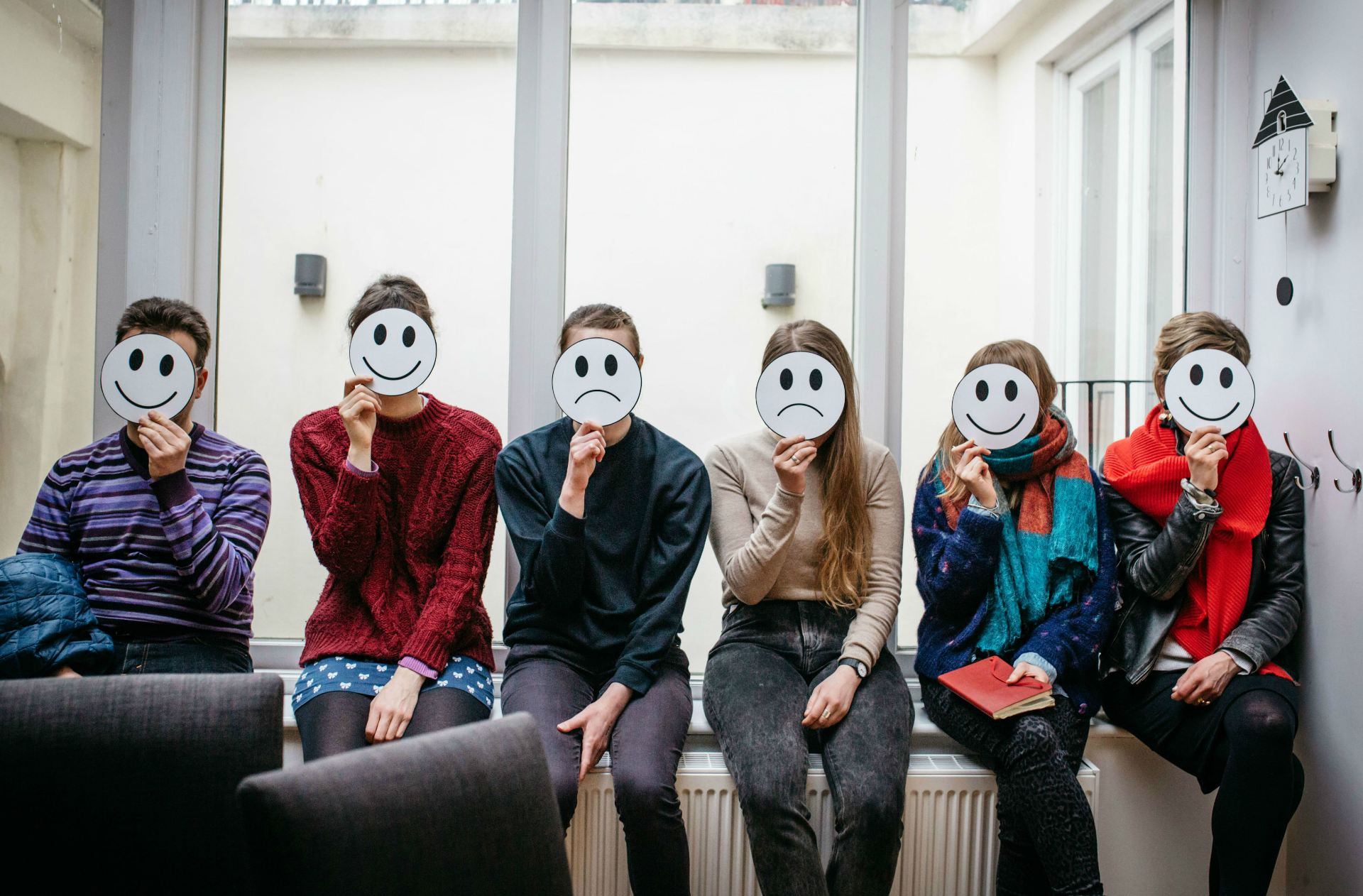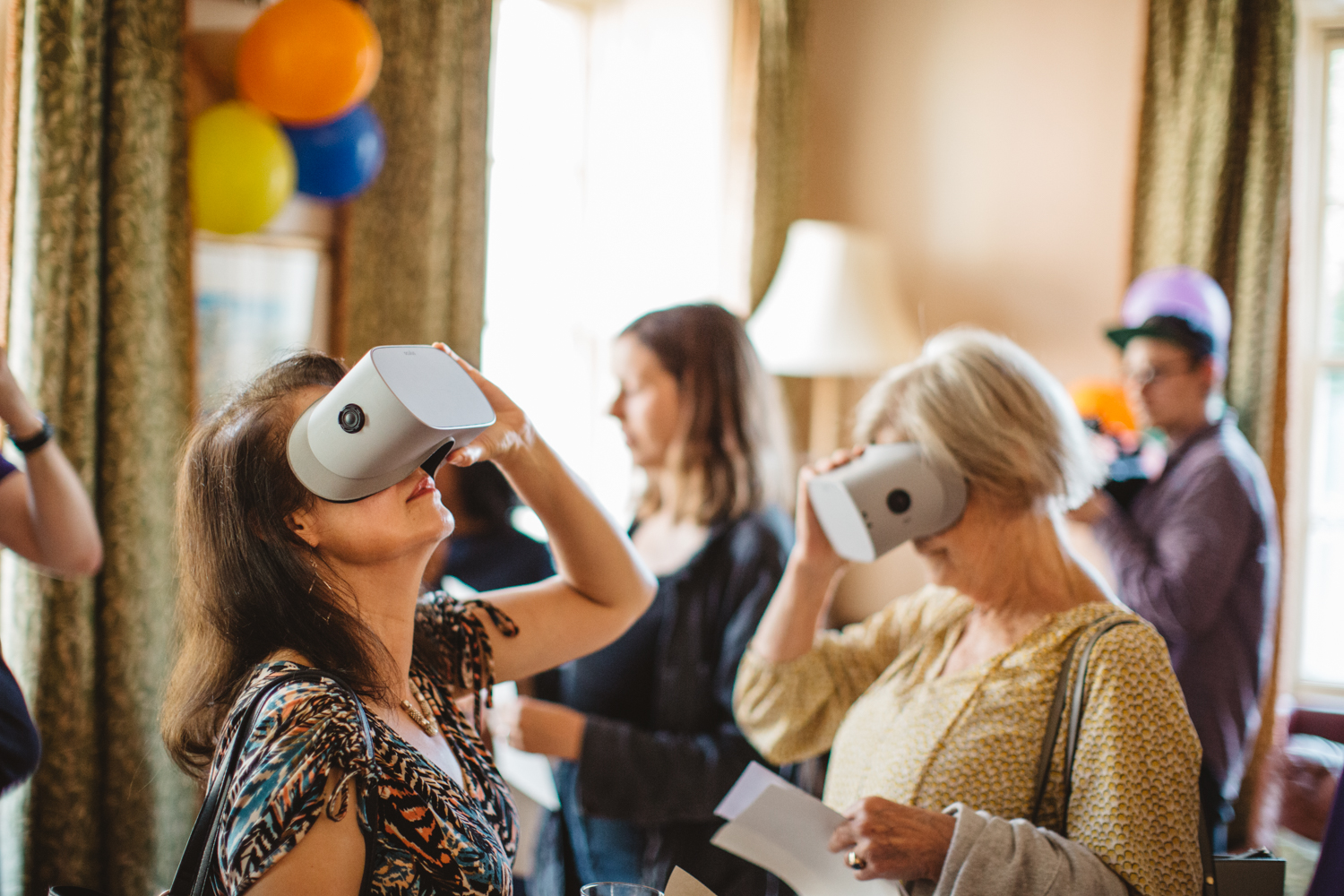Through the collaboration we learnt that the process of bringing artists and scientists together was particularly powerful. The researchers had the opportunity to discuss their work in new ways with each other, considering best case scenarios, worst case scenarios, potential future headlines and unintended consequences.
Invincible (2014)
Invincible was a participatory theatre production produced by Kilter Theatre in partnership with researchers from University of Bristol SynBio in 2014. The University’s Public Engagement team approached Kilter Theatre to develop a project that opened up the new science of synthetic biology to more public scrutiny and debate.
Set in a modern family house in a fictional future, the performances immersed young people and public audiences in the very possible personal and family dilemmas that might arise as a result of developments in this new area of science – Synthetic Biology.
Written in collaboration with the University of Bristol’s play-writing fellow, David Lane and the result of an extensive consultation exercise with the University of Bristol’s Synthetic Biology researchers Invincible put audiences at the heart of a contemporary moral dilemma.
The interactive play, which invited audience members to use masks to show reactions, explored an imagined future where synthetic biology treatments were common. Focussing on a treatment for depression, it featured three generations of women in one family, all connected to synthetic biology in some way. Performances were followed by a discussion between the audience, cast and Synthetic Biology researchers.
Produced in partnership with Kilter Theatre, the Public Engagement team at the University of Bristol, BrisSynBio and the Cabot Learning Foundation. Invincible was developed as part of the Synenergene project, which was funded under the European Commission FP7 funding programme.
Futures (2019)
In 2019 Kilter Theatre company worked in collaboration with researchers from the University of Bristol explore the cutting-edge worlds of quantum and virtual reality.
As immersive technologies like virtual reality look set to become part of our everyday existence, Futures explored the ethics and societal issues of this cutting-edge science. Kilter devised new ways of communicating developments in the technology, and of harnessing conversations around ethics, philosophy, and the human experience.
The project culminated in a series of workshops and micro-performances in summer 2019, designed to provoke an ethical conundrum for the future and share cutting-edge research with the public.
Futures was a year-long collaboration with researchers from the QET (Quantum Engineering Technologies) Labs and the Virtual Realities: Immersive Documentary Encounters project team at the University of Bristol, supported by the Public Engagement team and in partnership with We The Curious, Knowle West Media Centre, and a number of Bristol schools.
The latest phase in the development of biotechnology, Synthetic Biology enables scientists to gain unprecedented control in programming new biological functions by rewriting the genetic code.
Whilst Synthetic biology has the potential to contribute to finding solutions to some of the major challenges faced by society today, such as health, sustainability, scarcity of resources and energy security, this new discipline also allows mankind to put ‘life’ and ‘nature’ on the drawing board like never before, raising significant ethical questions and inviting accusations of ‘playing god’.
Kilter Theatre
Kilter Theatre create immersive theatre productions and arts events. They collaborate with a wide range of organisations and communities. They design and produce events from interesting, beautiful and unique people and places. Kilter empower participants in ethics, society, the environment and the future.
Further resources
- Talking and Thinking: on the collaboration between BrisSynBio and Kilter Theatre and how dialogue with creative practitioners is a unique opportunity to reflect deeply about research ethics, impact and responsibility.
- Qupid and VR100: University press release
- Futures (2018-19): An arts-science collaboration exploring the worlds of quantum and virtual reality.
- Welcome to Tomorrow: Public Engagement and Kilter. A guest blog reflection on the nature of long term collaboration and the value and process of working with an arts partner on multiple projects, from the University of Bristol Public Engagement team.
- Viv Kuh on creative approaches to Public Engagement, collaborating with artists and the working relationships between researchers and artists.




